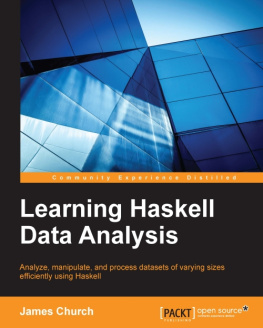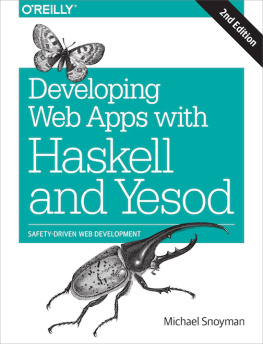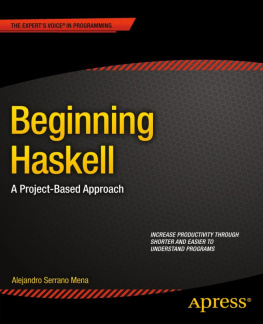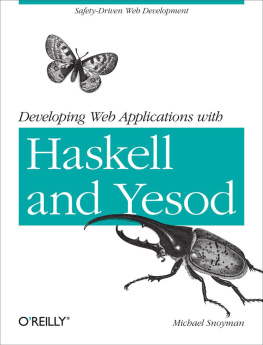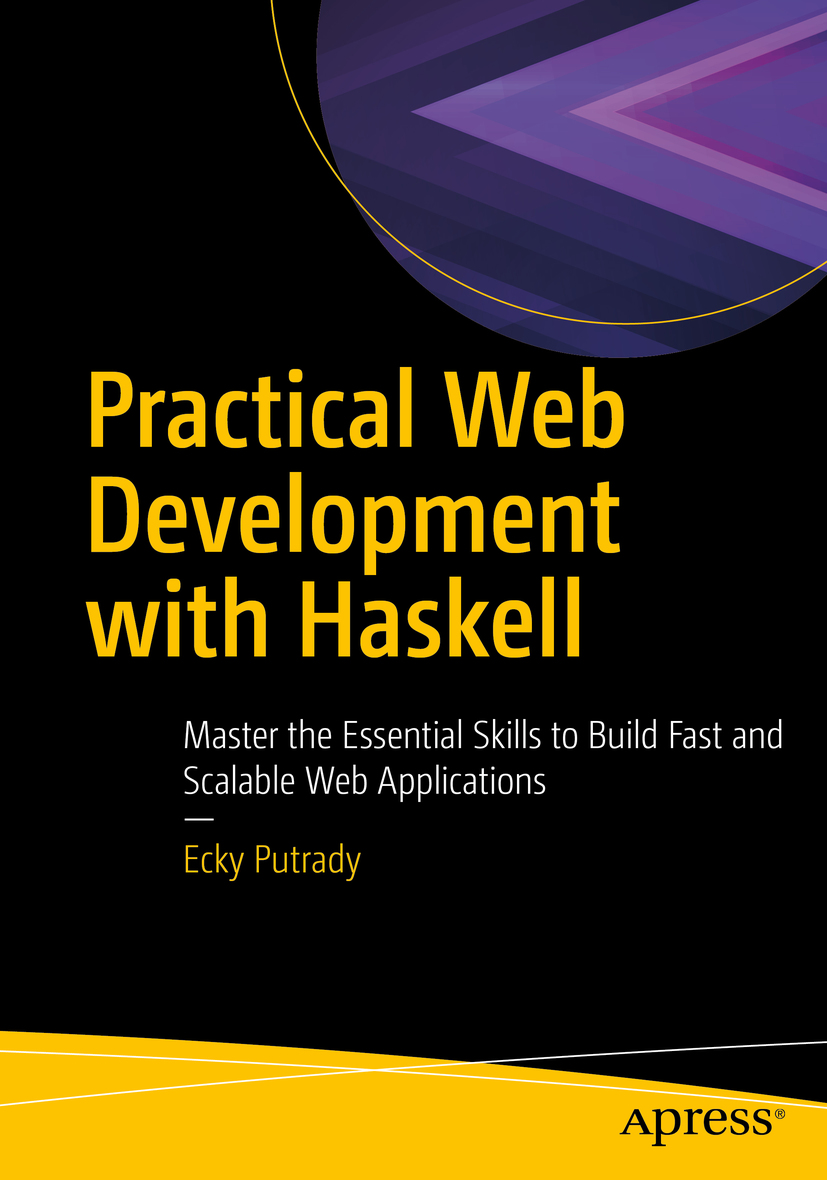Ecky Putrady - Practical Web Development with Haskell: Master the Essential Skills to Build Fast and Scalable Web Applications
Here you can read online Ecky Putrady - Practical Web Development with Haskell: Master the Essential Skills to Build Fast and Scalable Web Applications full text of the book (entire story) in english for free. Download pdf and epub, get meaning, cover and reviews about this ebook. year: 2018, publisher: Apress, genre: Computer. Description of the work, (preface) as well as reviews are available. Best literature library LitArk.com created for fans of good reading and offers a wide selection of genres:
Romance novel
Science fiction
Adventure
Detective
Science
History
Home and family
Prose
Art
Politics
Computer
Non-fiction
Religion
Business
Children
Humor
Choose a favorite category and find really read worthwhile books. Enjoy immersion in the world of imagination, feel the emotions of the characters or learn something new for yourself, make an fascinating discovery.
- Book:Practical Web Development with Haskell: Master the Essential Skills to Build Fast and Scalable Web Applications
- Author:
- Publisher:Apress
- Genre:
- Year:2018
- Rating:3 / 5
- Favourites:Add to favourites
- Your mark:
Practical Web Development with Haskell: Master the Essential Skills to Build Fast and Scalable Web Applications: summary, description and annotation
We offer to read an annotation, description, summary or preface (depends on what the author of the book "Practical Web Development with Haskell: Master the Essential Skills to Build Fast and Scalable Web Applications" wrote himself). If you haven't found the necessary information about the book — write in the comments, we will try to find it.
Learn how to advance your skill level of Haskell, and use this language for practical web development. This book uses a direct, no nonsense approach, so you no longer need to spend extra time reading the documentation, blog posts, and forums to understand how to use Haskell all that knowledge is provided in one coherent resource.
Youll start by reviewing how multiple facets of web development are done in Haskell, such as routing, building HTMLs, interacting with databases, caches, and queues, etc. Youll then move on to using notable libraries, such as scotty for routings, digestive-functor for input validation, and postgresql-simple for interacting with databases.
In the later chapters, youll learn how all of these libraries can be used together by working on a fully functioning project deployed on Heroku.What Youll Learn
- Set up a productive Haskell development environment
- Review basic tasks that are encountered when building web applications.
- Explore how to interact with external systems, such as databases, queues, and RESTful APIs.
- Build a RESTful API, website, building views and form validation.
Who This Book Is For
Software developers familiar Haskell and would like to apply the knowledge on real world applications and software developers new to Haskell.
Ecky Putrady: author's other books
Who wrote Practical Web Development with Haskell: Master the Essential Skills to Build Fast and Scalable Web Applications? Find out the surname, the name of the author of the book and a list of all author's works by series.

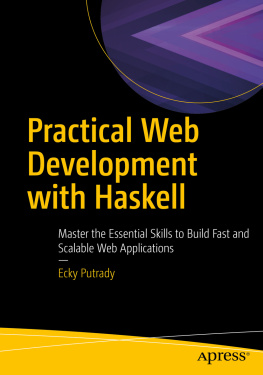

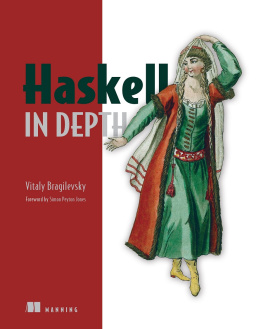
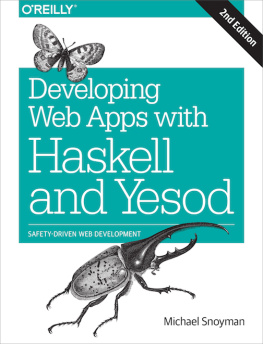

![Will Kurt [Will Kurt] - Get Programming with Haskell](/uploads/posts/book/116897/thumbs/will-kurt-will-kurt-get-programming-with-haskell.jpg)
